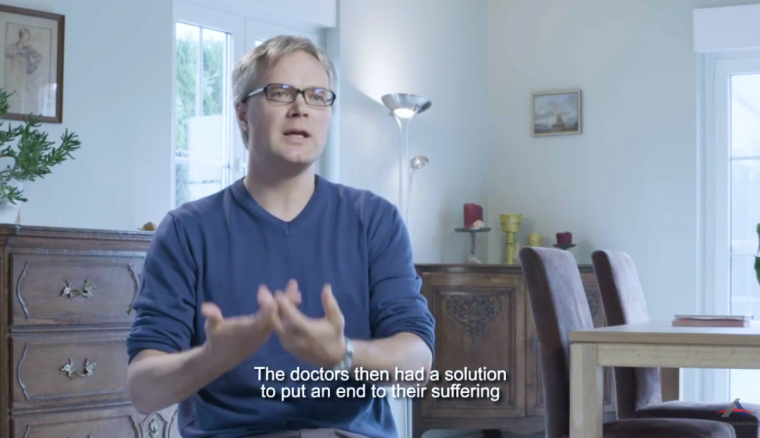Human rights court to hear case against Belgium over euthanasia of depressed woman

A legal challenge brought against Belgium by a man whose depressed mother was euthanised is to be heard by the European Court of Human Rights.
The ECHR, based in Strasbourg, has agreed to hear the case lodged by Tim Mortier after his legal case failed in the Belgian courts.
His mother, Godelieva De Troyer, was 64 when she was killed by lethal injection in a Brussels hospital at her own request in 2012.
Although she was in good physical health, she had a history of mental health problems and doctors agreed that she was suffering from 'untreatable depression'.
Her son says he was unaware his mother's life had been ended until the hospital contacted him to retrieve her body.

After her death, Mr Mortier tried to bring criminal charges against the doctor who administered the lethal injection, Prof Wim Distelmans.
His attempts were unsuccessful in Belgium, where euthanasia is legal not only for the terminally ill but those with psychological conditions.
The law states that euthanasia is legal where a person is in a 'medically futile condition of constant and unbearable physical or mental suffering that cannot be alleviated, resulting from a serious and incurable disorder caused by illness or accident'.
According to the Alliance Defending Freedom, which is representing Mr Mortier, his mother's treating psychiatrist of more than 20 years claimed that De Troyer did not satisfy the requirements of the Belgian euthanasia law.
After failing in his appeals in the Belgian courts, Mr Mortier is challenging Belgian's euthanasia laws in the European courts on the grounds that they go against the 'right to life' protected in the European Convention on Human Rights.
Robert Clarke, Director of European Advocacy at the Alliance Defending Freedom, said: 'We welcome this decision of the Court to hear this precedent setting case on the right to life – particularly as it relates to the most vulnerable in society. International law has never established a so-called 'right to die.'
'On the contrary, it solidly affirms the right to life – particularly for the most vulnerable among us. A look at the sad facts of this case exposes the lie that euthanasia is good for society.'











